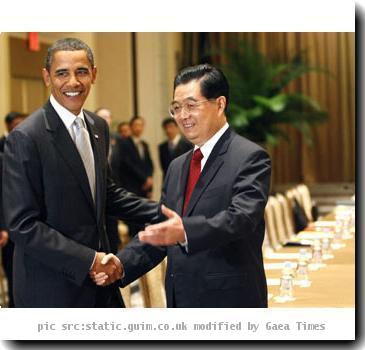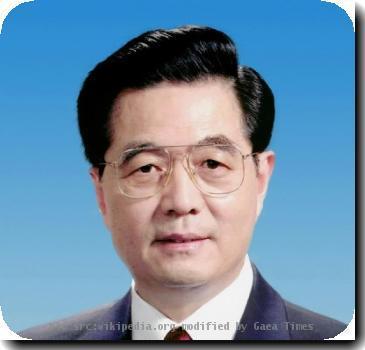Experts: Harper’s first visit to China a sign of thawing bilateral relations
By Chi-chi Zhang, APWednesday, December 2, 2009
Experts: Harper’s 1st visit to China to thaw ties
BEIJING — Canadian Prime Minister Stephen Harper arrived in Beijing on Wednesday for what Chinese experts are touting as a fence-mending trip to repair ties damaged by Ottawa.
China-Canada relations have soured over a series of disagreements, especially since Harper’s Conservative government took office nearly four years ago with a harder line on China’s human rights record.
The four-day trip, Harper’s first to China, appears aimed at overcoming negative sentiment on both sides. Harper is to meet with both President Hu Jintao and Premier Wen Jiabao for discussions on strengthening trade and overall ties.
Harper was welcomed by children bearing flowers at the Beijing airport. He was accompanied by his wife, Laureen, and a 40-strong member entourage, including International Trade Minister Stockwell Day and Agriculture Minister Gerry Ritz.
Chinese commentators have portrayed the trip as an act of contrition by Harper, who angered Beijing in 2006 when Canada granted exiled Tibetan leader the Dalai Lama honorary Canadian citizenship. China also criticized a public meeting the next year between Harper and the 1989 Nobel Peace Prize winner as “gross interference” in its internal affairs.
“Canada has begun to value the importance of our relationship as China’s image in the world improves and economic power grows, especially during the financial crisis,” said Tian Chenshan, director of the Center for East-West relations at the Beijing Foreign Studies University.
“We’ve had a good relationship in the past, so this trip will be reviving a Sino-Canadian friendship,” Tian said.
China is Canada’s second-largest trading partner after the United States, with bilateral trade volume increasing from $23 billion in 2006 to about $35 billion in 2008, according to statistics from China’s Customs Administration.
“Our two countries enjoy a growing partnership, sharing significant interests in trade and investment, the environment and regional security,” said Harper, in a statement released by the Canadian Embassy in Beijing.
China has also been critical of Canada over the case of Lai Changxing, accused of heading a network that smuggled as much as $10 billion of goods into the country with the protection of corrupt officials. Lai fled to Canada a decade ago and has battled ever since to stay there, arguing that he faces torture and possible execution if he returns to China.
China has given assurances that Lai will not face execution if he is returned.
The Canadian government has been trying to deport Lai, although Canada and China do not have an extradition treaty. Many Chinese do not understand that the Canadian government cannot dictate or influence court decisions.
Canada has complained over a Chinese court’s conviction on terror charges of Chinese-born Canadian Huseyin Celil, who was arrested during a 2006 visit to relatives in Uzbekistan and extradited to China.
Celil is a member of the Muslim Uighur ethnic group who fled China in the 1990s fearing persecution for criticizing the government.
Ottawa says he has dual citizenship and that a Canadian diplomat should be allowed to visit him, while China does not recognize his Canadian citizenship.
Harper will also visit Shanghai and Hong Kong before leaving for South Korea.
Tags: Asia, Beijing, Canada, China, East Asia, Extradition, Greater China, Hu Jintao, International Trade, North America

